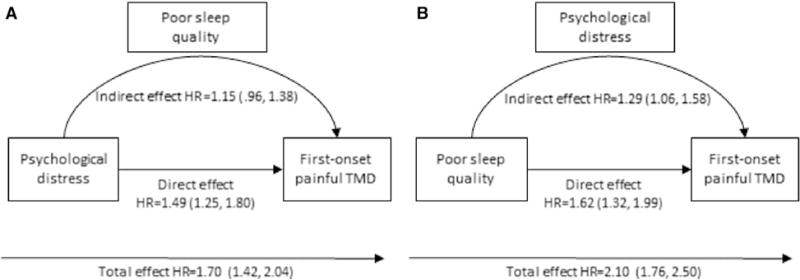Figure 3.

(A) The association of perceived stress and first-onset painful TMD mediated by poor sleep quality. The mediation model is adjusted for study site, age, sex, and race/ethnicity. The predictor is perceived stress (PSS score reported by each participant at baseline) dichotomized at the 69th percentile corresponding to ≤17 = low stress versus >17 = high stress. The mediator is the continuous score on SQ-NRS (z-score transformed mean SQ-NRS reported by each participant at quarterly follow-up visits). Values are covariate-adjusted HRs and 95% CL (N = 2,711). (B) Mediational model of first-onset TMD. On the left side, the effect of stress on first-onset TMD is mediated by poor sleep quality. On the right side, the effect of poor sleep quality and first-onset TMD is mediated by perceived stress. Both mediation models are adjusted for study site, age, sex, and race/ethnicity. Poor sleep quality (PSQI global score at baseline) was dichotomized at ≤5 = good sleep quality versus >5 = poor sleep quality. Stress is the continuous score on the PSS (z-score transformed mean PSS score reported by each participant at quarterly follow-up visits). Values are covariate-adjusted HRs and 95% CL (N = 2,650).
